MUST READ OF THE WEEK: UNTAMABLE BY DR. NAHLA KHADDAGE BOU-DIAB
This article contains affiliate links. We may earn a small commission on items purchased through this article, but that does not affect our editorial judgement.
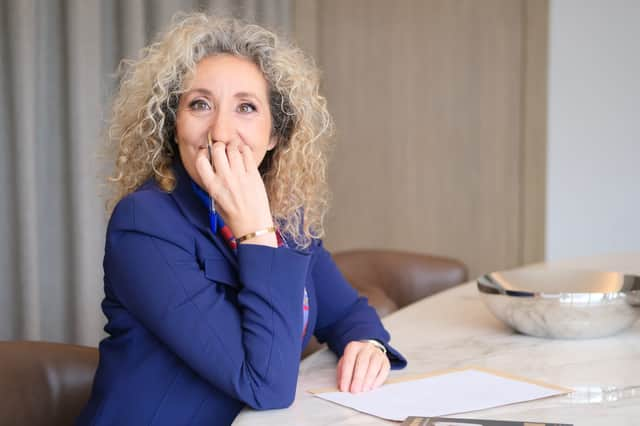

Untamable by inspirational leader Dr. Nahla Khaddage Bou-Diab is a powerful transformative self-help guide to transform challenges into opportunities and success, underpinned by the author’s own personal experiences and supported by the latest scientific understanding of human potential.
By Gwyneth Rees
The self-help market is replete with books that promise to transform your life, but precious few of them actually demonstrate how it is done and the end result that can be achieved.
Not so with Untamable: Claim Your Power, Live Fearlessly, and Become Unstoppable, which combines motivational autobiography with spiritual self-actualisation to show readers how adhering to a simple set of guiding principles are ultimately to thank for the author’s personal and professional triumphs.
Written by internationally-respected inspirational leader and gender-diversity leader Dr. Nahla Khaddage Bou-Diab, this stand-out guide could very well be the only resource you’ll need to master your thoughts and find success.
Setting forth Dr. Bou-Diab’s own powerful and distinct form of mindfulness, Untamable will help individuals from all walks overcome life difficulties by opening themselves up to
untapped energies, and by learning how to take control of their thoughts and emotions and make the right decisions.
The book is the culmination of decades of lived experience, in which Dr. Bou-Diab learned—through great personal hardships—a set of five key tenets to become, as the title denotes, untamable.
The author, who is now the COO of a prominent bank in her native Lebanon, speaks openly about these trials and tribulations, but always in a positive way, free from regret or self-pity.
Her backstory is comprehensively detailed in the first half of the book, and a short summary is important for understanding its wider relevance to the potent guidance she provides.
Born in Lebanon into a loving yet strictly conservative family, Dr. Bou-Diab’s early years were marked by suppression, where she had to conform to social rules that deprived her from the basic joys of life.
This caused her great anxiety and instilled a need to please, which only became more pronounced when she and her family relocated to Canada at eight years of age to escape the beginnings of what would become a prolonged and bloody civil war.
The passage itself was difficult and arduous, with little hope to hold on to, but the author stayed upbeat with the expectation that she would be arriving to the life she had long dreamed of.
Things, however, did not turn out as expected. Settling close to relations in Ottawa, the Canadian capital, she was still subject to close control. In addition, she found it difficult to integrate—initially because of the language barrier, but later simply because of xenophobia.
Her raw recollections of her school days, where children would bully her relentlessly, such as spitting on her or burying her in the snow, are some of Untamable’s most moving passages.
She was called hurtful names and, unable to defend herself, she became painfully aware of how different and poor she was compared to her peers.
Home life was also difficult, with the culture shock only making her parents more conservative, fearful of their children losing sight of traditional Lebanese values.
And with her father, who had been a respected professional in Lebanon, only able to secure work as a security guard, the basic necessities such as food and drink were often hard to come by.
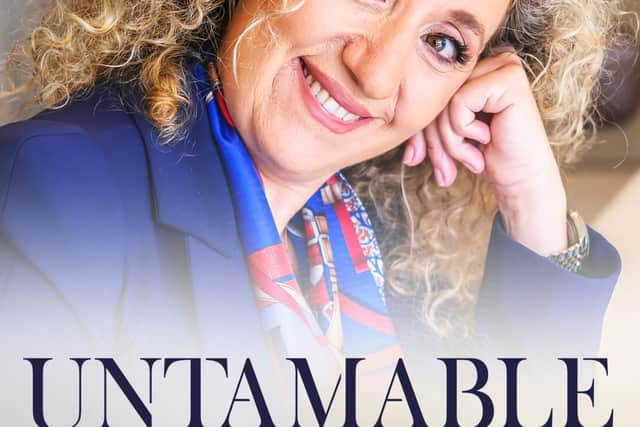

She recounts, for example, one particular time when the fridge held only one piece of feta cheese to feed the whole family. The author, the second eldest of four children, gave it to her two younger siblings so they wouldn’t go without, while she went to sleep hungry.
Yet, even at this early age, Dr. Bou-Diab was beginning to formulate the positive outlook that would later come to serve her so well. She remembers only feeling gratitude towards God for, at least, having water to quench her thirst.
These sections—chronicling such formative and influential moments in the author’s life—are truly heart-breaking to read.
Yet they never stray into mawkish sentimentality, and this is reflective of one of Dr. Bou-Diab’s biggest strengths as an author: employing a writing style that is to the point, being reflective and meditative without becoming indulgent.
In her teens, the author found new restrictions imposed, being warned not to bring shame upon the family by talking to boys and, most importantly, being denied the right to pursue a university education.
Despite being academically gifted, Dr. Bou-Diab was expected to keep to Lebanese tradition and, one day, become a housewife, with a husband to provide for her.
In the meantime, she would be expected to enter employment so as to bring in much-needed money for the family.
This well-meant yet cruel blow would no doubt have permanently crushed many a young woman’s aspirations once and for all.
Dr. Bou-Diab, however, drew upon the unshakable strength of her faith and decided to make the most of the situation, throwing herself into her work while pursuing a night-time course in business administration.
She is open in saying that she had no particular desire to focus on business studies, but with university out of the question and the other educational options severely limited, she took what she could, and committed to it with all her heart.
The difficulties did not, however, end there. As many women will relate to, she encountered harassment in the workplace and, on account of refusing her manager’s advances, was threatened with dismissal.
Thankfully, her dedication to her job and exceptional output meant that not only did she retain her position, but also that she was promoted by the area manager. And given the option to have her immediate manager fired, she refused to take it, not believing in vengeance.
From this time on, the author’s personal story becomes brighter, with her branching out into consultancy work, including a major restructuring project for the Bank of Canada which led to a partnership offer from her consultancy, and marrying her childhood sweetheart from Lebanon.
Another remarkable observation when reading “Untamable” is the highlight it puts on decision-making and its subsequent influence on the outcome of the situation.
While faced with unbearable situations, Dr. Bou-Diab always refused to take the revenge road. Her decisions were always enlightened and aligned with the principles she shares in her book. All her hardship was part of a path and each decision along this path led her to where she is today.
In her book Dr. Bou-Diab takes the reader through a reflection of her thought process and the decisions she made using her life events to illustrate the outcome.
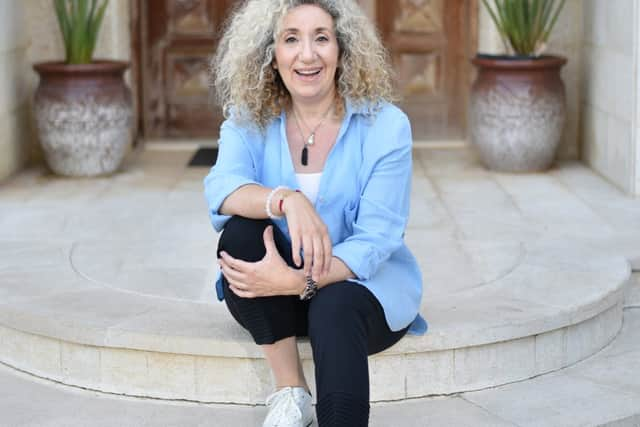

If the book had solely contained this autobiography—the personal and professional struggles of assimilating to a new country, navigating negative, gender-based expectations, and managing workplace harassment—it would, in itself, have been an exhilarating and eye-opening read.
Yet Untamable has a second part to it, entitled ‘My Lessons’—which then takes these experiences and demonstrates how Dr. Bou-Diab converted them into success, and you can, likewise, take any challenge and turn it into an opportunity for growth.
The central concept here is learning how to ‘connect, trust and accept’, and this is governed by five key principles.
These include having gratitude for the gifts in your life, developing a greater sense of inner awareness by taking time to observe your life and environment calmly (rather than being caught up in events), and nourishing the whole self (body AND mind) holistically to maintain your mental and emotional health.
The principles are rounded off with the importance of recognising that we are all part of a universal power that we can connect to, to create the outcomes we want, releasing all expectations (both of yourself and others) and instead always acting with good intentions and no set expectations.
For instance, Dr. Bou-Diab writes of how, when she was younger, she observed the harassment she was receiving from her boss yet, instead of focusing on the sense of fear this created, she chose instead to focus on her work, which led her to a promotion.
She also writes of how she chose not to project hate and anger onto her family for the limitations they imposed but, instead, channelled her sadness to building patience and understanding.
She also notes that there is always something to be grateful for, even if it’s something as basic as food in the fridge.
Incredibly brave and inspiring, Untamable urges you to go high when others go low, to borrow a phrase from Michelle Obama.
The author challenges you to let go and be at one with the universe so you can learn how to meet challenges head on with confidence.
And it calls on you to find and express your voice, freeing yourself from negative thoughts and gaining present-moment awareness.
As well as appreciating the author’s personal journey, I also love the fact the book is interactive, insisting that you write a journal to uncover what fundamentally makes you happy, in the process defining the emotions you WANT to experience, and breaking the harmful generic illusion of ‘happiness’.
By absorbing her guidance, you will be encouraged to explore the social pressures you may feel and to rise above them, into a position of control rather than of being controlled.
It’s all presented in an encouraging yet down-to-earth manner, and I appreciate the fact that it’s not all sunshine and roses. For example, Dr. Bou-Diab is honest about a difficult decision she once made to fire an employee on Christmas Eve, and which marked her and triggered her to make a big change in her career and her life.
At its root, and as the author says, this is all about learning to grow, for without learning we “age and die”.
And, undoubtedly, Untamable will help you learn how to tap into a universal power that will propel you forward.
Another thing that I love is how the author draws on the latest scientific research into such topics as neuroscience and quantum physics to support her claims on the profound connection between our thoughts, perspectives, actions and results.
Here, she shows that the guiding principles that have carried her forward have a firm footing in the wider mesh of reality.
With its universal and easily adoptable life lessons, Untamable will appeal to anyone seeking greater knowledge of how to live a prosperous and healthy life.
Filled with integrity, virtue and honesty, this is a roadmap to unlocking your potential and using events—no matter how painful they may seem—to create positive, lasting change.
Dr. Nahla Khaddage Bou-Diab is the author of new self-help guide Untamable: Claim Your Power, Live Fearlessly, and Become Unstoppable, published through Oneness Offshore and packed with powerful, proven tools to transform your life. It is available now on Amazon, priced £11.59 in paperback and £5.87 as an eBook, as well as on Barnes & Noble. For more information, visit www.nahlaboudiab.com.
Q&A INTERVIEW WITH DR. NAHLA KHADDAGE BOU-DIAB
We speak with the truly Untamable author Dr. Nahla Khaddage Bou-Diab to find out more about her new book, her guiding principles, and her transformative outlook on life.
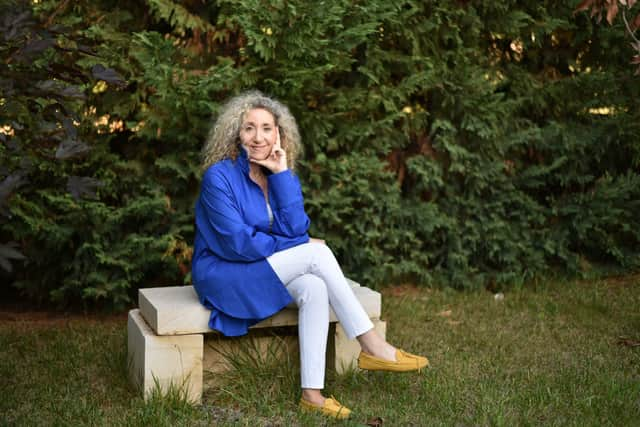

Q. What do you hope readers gain most from reading Untamable?
A. People are magical. We have great powers; we are equipped to create, learn, share and love. Unfortunately, we are not leveraging our functionalities because we are too busy surviving; we are too busy reacting to hardship; we are too busy suffering—and the more we react, the more we drift away from who we are. We lose touch with our intuition and our powers, and get stuck in a vicious negative cycle that drains our energy and keeps us distracted from our real purpose. It is my hope that my book will show people how to shift from reacting to hardship to activating our thoughts and freeing ourselves from the cycle of negative emotions. It is my hope that I can illustrate to people how they can transform hardship into success. It is my hope that I can communicate with my readers how I shifted to a cycle of creation and growth.
Q. Your book is packed with episodes from your own life where you have secured success from hardship thanks to the principles you follow. Which one example would you cite to someone as proof of your principles’ effectiveness?
A. It has to be the incident when my manager was harassing me. This was a difficult situation that triggered a lot of negative emotions. I was an 18-year-old girl who felt invaded and scared. I was worried that if I spoke up I would lose my job, which would place me in an even more difficult situation—especially as I was a financial provider for my family. I saw it as a helpless situation and I only saw two possibilities: either accommodate my manager out of fear of losing my job or be still and put all my energy into praying and hoping that a greater power would guide me. If there was a time when I needed intervention from the universe, it was then and what an opportunity it was to validate my connection with my creator. Back then, I didn’t realise that the actions I implemented would become principles that I would come to share with the world years later.
Q. How and when did you come to understand that there clear principles that could be followed time and again to ensure a positive outcome?
A. I was, and remain, very aware of the non-physical. I am connected to myself, my body, my intuition and I leverage my connection with my creator (or whatever you wish to call it). When you are this aware, you will see things from a different perspective. I never allow myself to be limited to a narrow view of a situation and I link every event to a bigger purpose. When you live life in this state of mind, you notice consistent patterns, and eventually they become dependable. You know what they say: if you can replicate an experiment, it is scientific. So, imagine that the patterns I have witnessed in my life experience are not only consistent but also supported by different fields of science such as neuroscience, physics, quantum physics, epigenetics and so on. There is a clear relationship between our thoughts, our perspective and the way we handle any situation—no matter how difficult it is. We can turn hardship into success because we are untamable, but we must activate our powers!
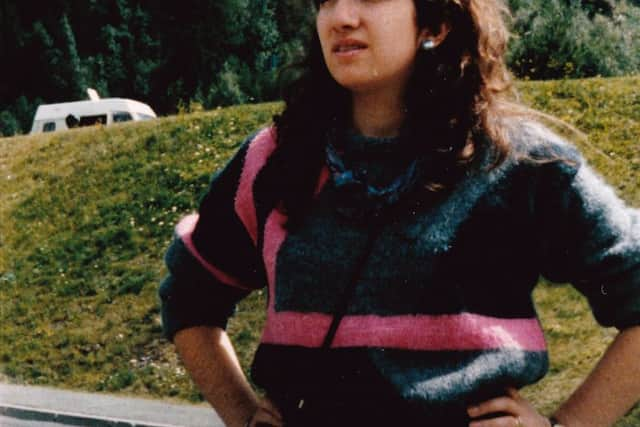

Q. Your guidance can be described as a form of mindfulness. Why do you think it is important to try and step back from our thoughts and the events we are involved in? What are the consequences if we don’t do this?
A. If we want to use our powers to manage life, we cannot be a detail because a detail will react to events and, when we are reacting, not only will we lose sight of the bigger picture but, more importantly, we drain our energy on unnecessary reactions that yield no value to anyone. We must nurture our abilities and use them to achieve our purpose—we should not allow anyone or anything to distract us from achieving happiness.
Q. You say in Untamable that your principles align with the latest scientific understanding of the universe. Can you explain more?
A. As I experienced life, I used to think that there was something special about me. This was not a comfortable place for me because I didn’t understand why I would be special nor did I know how to preserve these special features. We are privileged to live at a time when there is so much knowledge accessible to us. As I started exposing myself to this knowledge, I realised that scholars, doctors, and physicists are all talking about our connection with the universe. More importantly, they are providing scientific evidence of theories that match the patterns I have witnessed in my own life. Scientists and scholars validated notions that I experienced. For example, the emotion of gratitude—which is the first principle in my book— has been linked to benefits on the psychological and medical level, helping people disconnect from a cycle of negative behaviour. Evidence has been provided showing the effect of calming the mind on the physical body, which links to the principle of observing as shared in Untamable. When scientific evidence corroborates life events, it needs to be shared because people who may be struggling will find their own validation.
Q. You are currently working on your next book, tentatively titled Spirituality in the Organization. What can you tell us about it?
A. My first book, Untamable, addresses people on an individual level. I hope that, in a way, I am helping people prepare themselves to experience a different lifestyle—a lifestyle where they become the masters of their external environment. But stopping there is not enough because these people will go to work and will be subjected to management styles that will affect the way they feel and may discourage them. I want to add value to their work environment by helping their leaders transform the organisation. My second book shares the methodology I researched and successfully implemented to transform the organisational environment and its culture. In my second book I offer not only the methodology but also the evidence, proving that enabling feelings of spirituality inside the organisation can optimise its performance.
Q. What was the greatest challenge you faced in writing the book, and how did you overcome it?
A. In writing Untamable I had to relive every painful moment that I experienced, and my challenge was to heal and elevate my book with my healing. My intention is to help people and I did not want the reader to feel any negative emotions towards anyone that caused me suffering. My challenge was to write it in a simple and positive way so that the reader doesn’t feel the suffering and only enjoys the achievement.
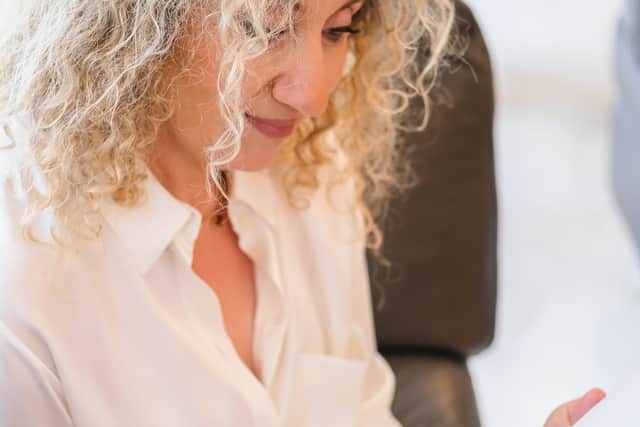

Q. What are you most proud about with Untamable?
A. The book helped me clear any residue pain I had left. I love the fact that writing this book elevated my own emotions. I looked at people who had caused my suffering differently; all I felt was empathy and gratitude because it is they who triggered my evolution.
Q. If you could only offer one piece of guidance to readers to help transform their lives, what would it be, and how will it help make a difference?
A. Don’t get sucked into negative reactive mode. Calm your thoughts, connect and—only then—act. If you connect, you will know what to do. Your intuition will unleash passion to drive you to act, and you won’t make a mistake.
Q. You are undoubtedly an inspiration to your readers, but which figures are an inspiration to you, and why?
A. Several scholars are an inspiration because they took the chance of researching and presenting topics that are not necessarily accepted by mainstream leaders, and this takes courage. I refer to several authors in my book that validated my own journey.